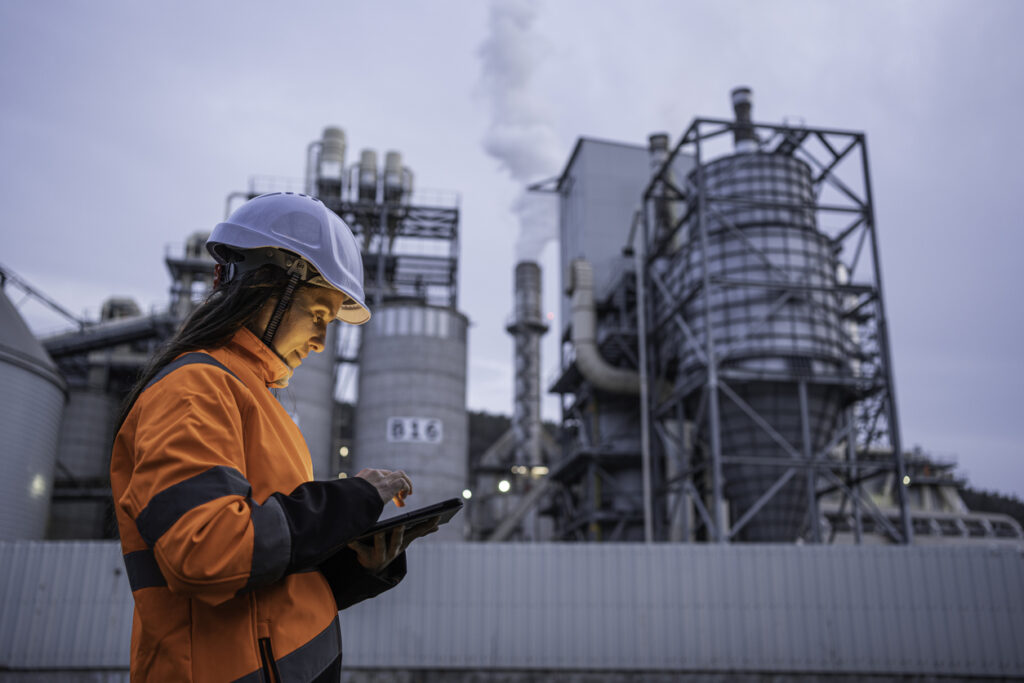Why conduct legal compliance audits?
Compliance with environmental and occupational health and safety legislation is becoming increasingly important. In a legal management system, checking compliance with these obligations is a sub-step of the court-proof organization and thus contributes to minimizing liability.
The environmental, energy and safety management standards ISO 14001, EMAS, ISO 50001 and ISO 45001 also require a regular review and assessment of compliance with legal regulations. In addition, owners, corporate headquarters and other stakeholders increasingly want to know about the status of legal compliance.
Our offer
Advantages of a legal compliance audit
Get in touch with us
We are happy to take on your legal compliance audits.
Our many years of experience with legal compliance audits and legal management systems as well as our state accreditations as environmental auditors, safety experts and engineering consultants for technical chemistry guarantee that your legal compliance audit will be highly informative and recognized.
Special legal compliance audit: Audit in accordance with §82b GewO
Pursuant to Section 82b of the Trade, Commerce and Industry Regulation Act (GewO) 1994, every owner of a commercial establishment in Austria that is subject to licensing must inspect it every 5 years (6 years in the case of a simplified licensing procedure) to ensure that it is
- the approval notices,
- the regulations otherwise applicable to the system under commercial law,
- complies with the applicable regulations pursuant to § 356b GewO (e.g. water law) and
- is subject to Section 8a concerning the control of major-accident hazards.
Minimize your liability risks
Pursuant to Section 82b of the Trade, Commerce and Industry Regulation Act (GewO) 1994, every owner of a commercial establishment in Austria that is subject to licensing must review it every 5 years (6 years in the case of a simplified licensing procedure) to ensure that it is

- the approval notices,
- the regulations otherwise applicable to the system under commercial law,
- complies with the applicable regulations pursuant to § 356b GewO (e.g. water law) and
- is subject to Section 8a concerning the control of major-accident hazards.
Requirements for the audit
The owner of the approved operating facility must arrange for the inspection in good time without having been requested to do so by the authority. The owner of an installation is the person who has the actual power of disposal over the installation, e.g. owner, tenant or leaseholder. The inspection may be carried out by the owner or company employees themselves, provided they are professionally qualified to do so. In addition, accredited bodies, state-authorized institutions, civil engineers and tradesmen (within the scope of their powers) are entitled to carry out the test.
The test must be documented in a
test certificate
which must be accompanied by full documentation of the inspection, in particular stating the scope and content of the inspection. In the event of any deviations from the agreed condition, the inspection report must be sent to the authority without being requested to do so, together with proposals for remedying the defects. The scope of the §82b audit is not easy to interpret in legal terms, which means that the audit is often carried out inadequately. This results in a non-negligible liability risk.
liability risk
as the responsibility for correct implementation always lies with the owner of the operating facility.
Our offer
With our many years of experience, we can carry out your §82b inspection.
Due to our qualification as an engineering office, we are authorized to carry out the inspection. Thanks to our many years of experience and the feedback we have received from the authorities, we guarantee that the inspection is carried out correctly, thereby minimizing your liability risk.

